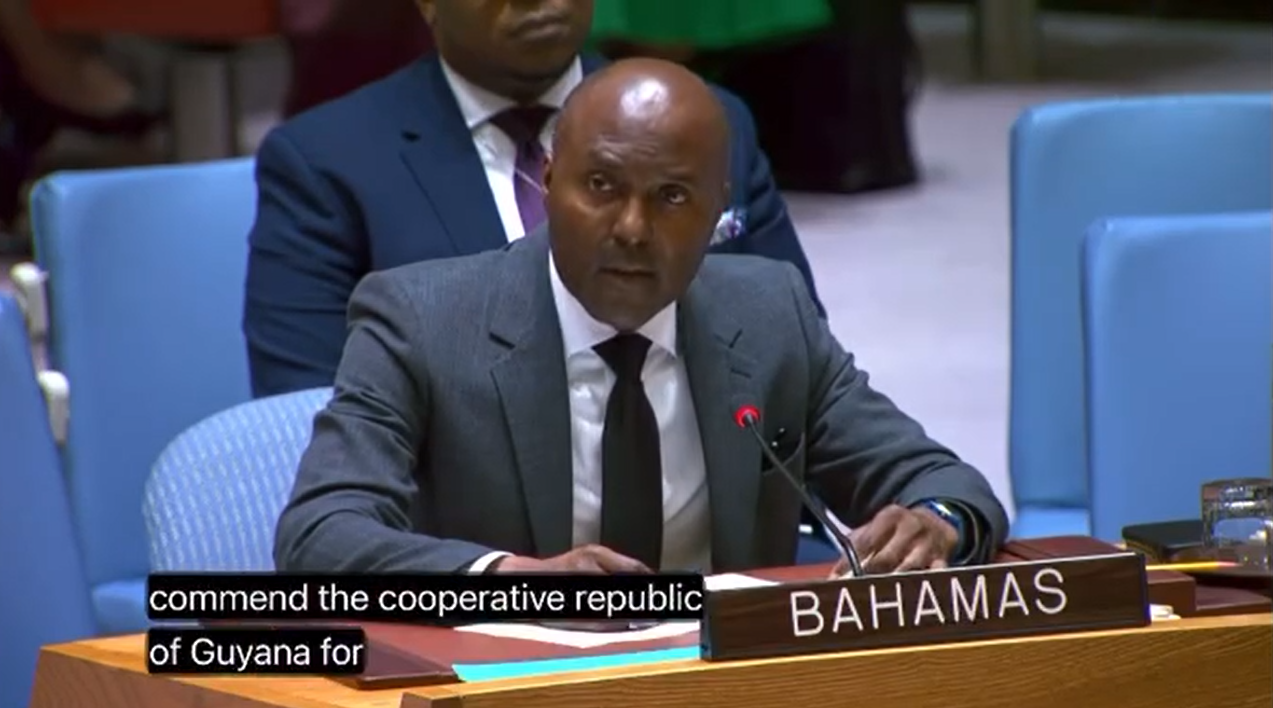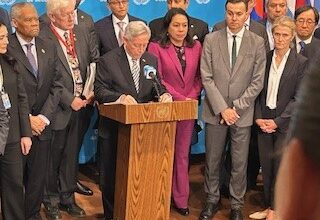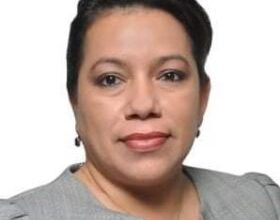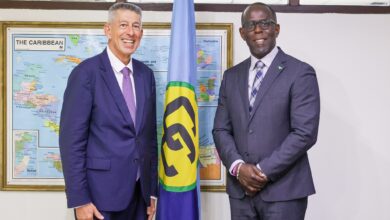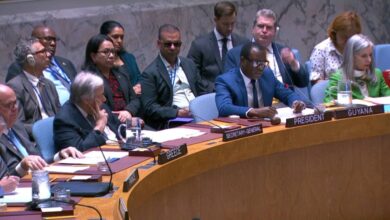Mister President,
I have the honour to deliver this statement on behalf of the Caribbean Community (CARICOM), and to commend the Co-operative Republic of Guyana for convening this important debate under the theme “Poverty, Underdevelopment and Conflict: Implications for the Maintenance of International Peace and Security.”
We welcome – Minister Todd- the leadership by Guyana in placing the nexus between peace and development at the heart of the Council’s deliberations.
Mister President,
The multiplier effects of poverty and underdevelopment cannot be contained within separate sets of political borders as isolated abstractions. Inequality fuels resentment. Lack of opportunity fosters desperation. And desperation is the oxygen of unrest. Fragile states and vulnerable populations are conducive to creating social ills.
The potency, abundance, and normalization of military stockpiles do not prevent unfavourable economic factors engendering a decent into conflict.
Against this context, the Republic of Haiti – a member of our community; the only Least Developed Country in the Western Hemisphere; and a country in a protracted, fragile and conflict-affected situation – is a sad illustration of the complex interplay between poverty, underdevelopment, and cycles of conflicts – and shines a light on the need to address historical wrongs and debilitating legacies.
The General Assembly, in its landmark Declaration on the Right to Development, recognized development as an inalienable human right. In this regard, CARICOM continues to support efforts to restore peace, security and democratic governance in Haiti. But without a foundational investment in sustainable development, as an enabling force against instability and conflict – peace cannot take root and will not be comprehensive.
2025, is seeing an alarming increase to over 123 million people worldwide – the internally displace, refugees; and asylum seekers – impacted by conflict; violence; persecution; and systemic underdevelopment, with aggregate projections reaching 139 million people worldwide by year-end.
These staggering numbers reflect – not isolated crises – but the cumulative consequences of governance failures; economic deprivation; and rising global inequality. CARICOM is therefore of the firm view that the Security Council must begin to take an integrated approach to issues of conflict and sustainable development.
Mister President,
Latin America and the Caribbean remain a Zone of Peace. Even as we experience daily the life-warping dysfunctions of the many tracks of underdevelopment—manifested in youth unemployment; migration pressures; gender-based violence; and the erosion of public trust.
In the context of the foregoing, CARICOM underscores two core messages to the Council to reflect the lived realities of a better peace and security architecture:
First: The Council must continue evolving its approach to security. Development is integral to prevention. Investments in inclusive and equitable development are critical. Every dollar spent on conflict prevention has been shown to save up to $103 in future humanitarian costs and economic loss. CARICOM calls for – among other things – greater use of early warning systems informed by indicators of economic and social vulnerability.
Second: Strategic coherence across the UN system is a prerequisite for effective peacebuilding efforts and development. The Council must leverage partnerships with ECOSOC, the Peacebuilding Commission, and development agencies to ensure that UN missions’ mandates address the root causes of conflict and instability. We also call for better alignment of peacebuilding with sustainable development goals – backed by predictable development finance – which – for CARICOM includes optimizing UN agencies’ access to private sector funding – in line with the recommendations of the Secretary-General’s New
Agenda for Peace.
Further, Mister President:
The digital divide threatens to become the new frontier of inequality. Coordination of global investment in digital infrastructure, education, and governance are vital to ensure that developing countries—especially SIDS and LDCs—are not locked out of the digital future – including the need to integrate youth, women, and indigenous voices into this transformation.
Finally, Mister President, the CARICOM model for building resilience as a preventive measure for conflict and insecurity involves strengthening integration efforts; enhancing climate resilience; and fostering partnerships with global actors. In our understanding of global needs for peace and security, we look to the international community to match our resolve.
This year marks the 80th anniversary of the UN Charter. Poverty eradication and economic justice as core conflict prevention tools. CARICOM calls for a Security Council that will not only react to conflicts – but make lasting peace possible by investing in a holistic security agenda that is inclusive, equitable, and preventive.
I thank you.
Foreign PolicyForeign Policy and Community RelationsSpeechesUnited Nations
STATEMENT BY THE CHAIR OF CARICOM CAUCUS IN NEW YORK, H.E. STAN SMITH, AT THE UNSC HIGH-LEVEL DEBATE ON INTERNATIONAL PEACE AND SECURITY, 19 JUNE 2025
